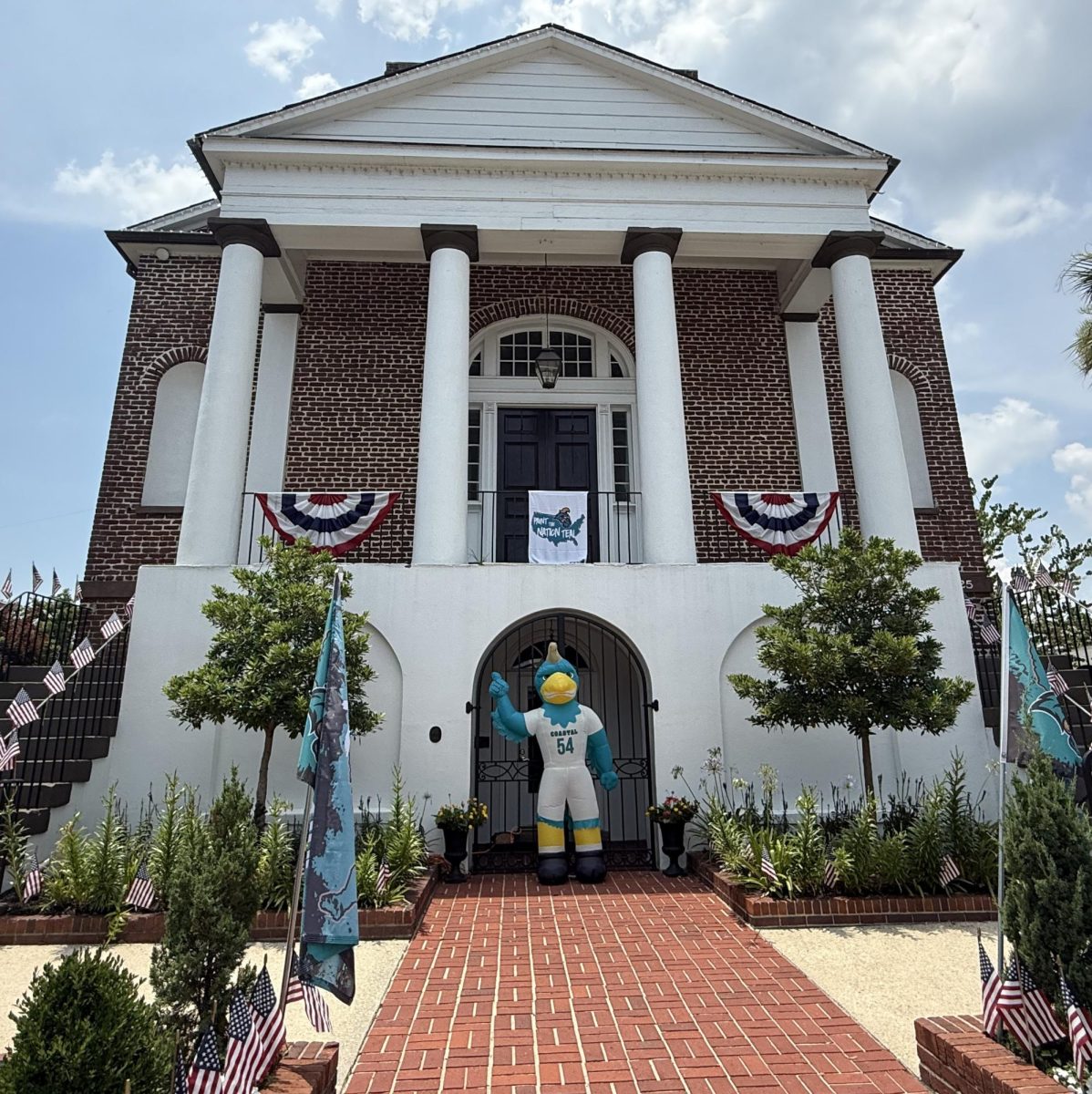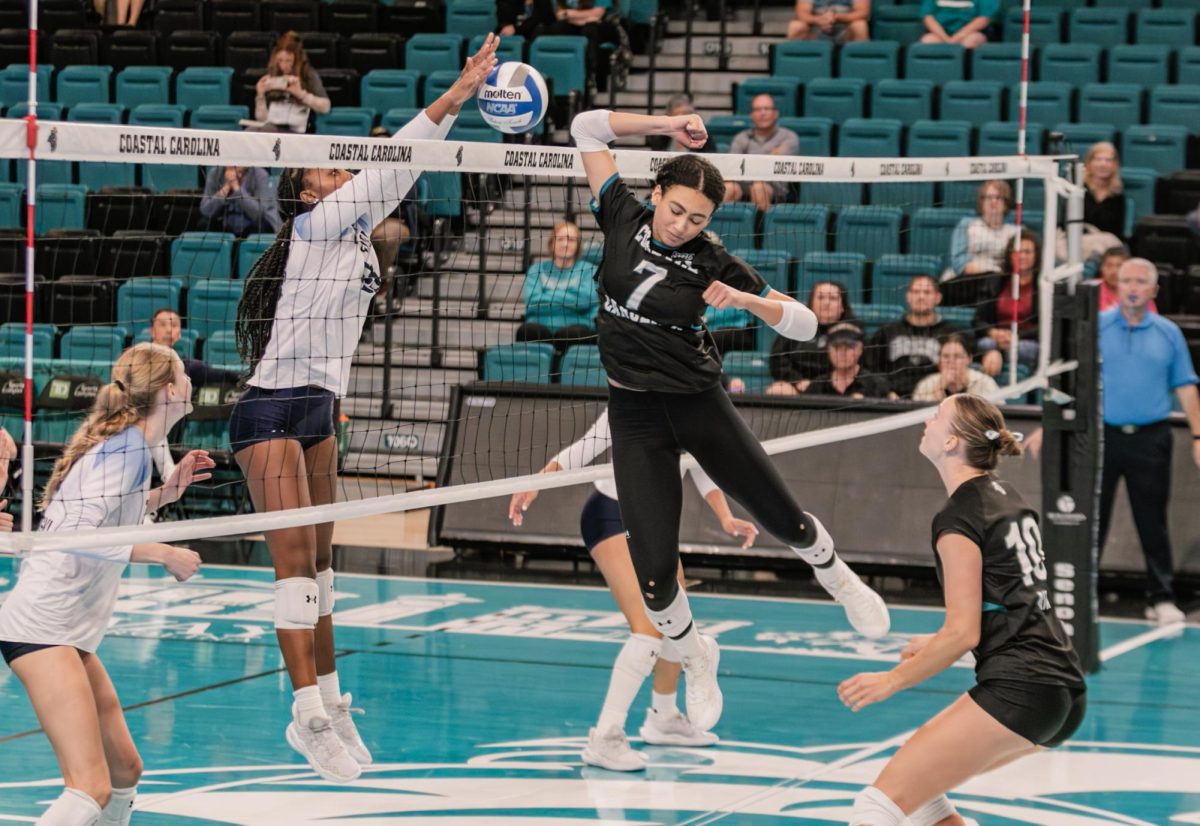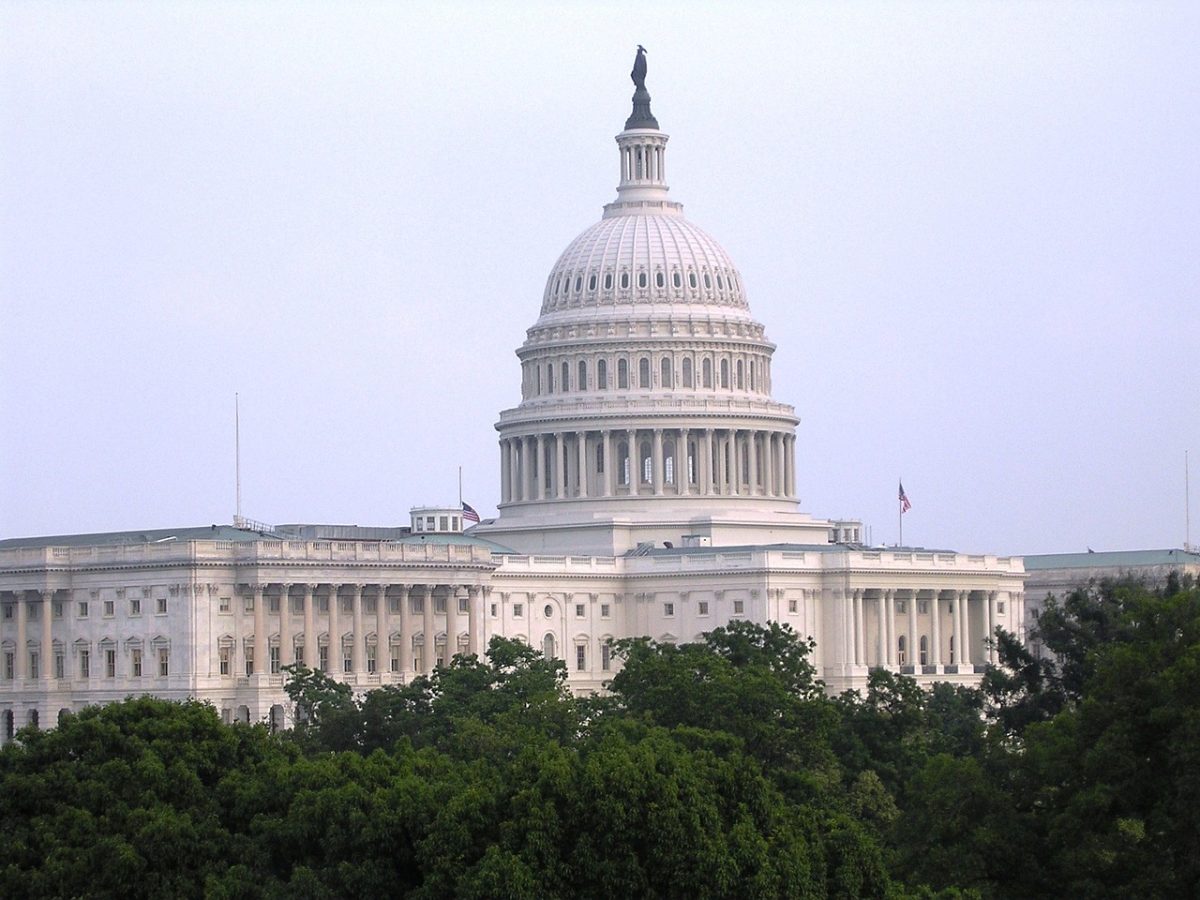Political polarization is the societal division of ideological extremes, and the increasing contempt between political parties has fractured the political sphere, pushing people further away from each other.
As a communication professor at Coastal Carolina University (CCU), Misti Williams has an extensive background in all things political communication. Her research efforts focus on the role of strategic communication in political media, political conflict and terrorism, according to Coastal’s website. Her classes Political Communication, Disinformation and Propaganda and Media Effects teach students how to think critically about the current political climate.
Williams questions the culprit of increased polarization. She first blames politicians, but the secondary antagonizer is unclear.
“As we see more politicians being more antagonistic to each other, not working together, then we start, like, picking sides,” Williams said.
Many Americans feel exhausted or angry when thinking about our current political sphere, according to Pew Research Center. People are tired of the sensation, tired of the fighting, but society feels more divided than ever. The political wings are spiraling into frenzies fueled by hatred of the other side, or so it seems.
Williams believes a large contributing factor to our increasing polarization is the battle over defining identities, rather than discourse over politics or policy changes. “Identity” is how people define themselves, or how they want to be defined, and dictates what in-groups or out-groups people belong to.
“So how we identify, how we define ourselves, is incredibly important to our understanding of who we are, what we should do in the future, our place in the world, all of that,” Williams said. “When you have politicians debating, again, not so much about policy, but about this identity of what it means to be American, then they’re ending up defining who we are and how we should see our neighbors, our communities, things like that.”
Politicians have a large platform to spread their intended messages because influential characters garner the most media attention. In political communication, the Spiral of Cynicism is a theory which explains how news media chases sensation and scandal, and politicians must act in increasingly controversial and divisive ways to attract more attention. The more focus they have from the media, the more power they seemingly have to dictate what is being discussed.
Party identification in a bi-partisan system can be so polarizing because politicians are using their platforms to question identity alignments. Both sides have their own definition of what it means to be American, and both sides argue that specific identity will be destroyed and lost if the other side wins.
“There’s a lot of incentive to be extreme right now if you’re a politician. At the same time, we have seen politicians becoming more opposed to each other, and public opinion tends to follow that.”
Williams said fear is a strong motivating factor. Challenging cultural identities creates fear of isolation, because humans have a desire to belong. Politicians can then either encourage people to vote, or to fight.
“It actually ends up being a pretty radical break,” Williams said.
Escalation of fear can lead to increased political violence. Although political violence in the United States is nothing new, violence is on the rise because people feel as though their identities are being threatened, according to Williams.
The rise of populism, or the belief that elites in power are betraying their constituents on both the left and the right, have discouraged citizen engagement. There is a rise in distrust because people feel like the system is rigged, like their voice doesn’t matter.
On the cusp of the Nov. 5 presidential election, it is critical that voters make themselves known. People must start listening to each other, rather than seeing who can argue the loudest.






















John Reed • Oct 16, 2024 at 3:27 pm
Outstanding rendition of some of our most recent political concerns. If you really believe in our democracy you need to understand that we each have our own sense of right and wrong. Each of us must not only focus on our own desires and interests but realize that the other person is free to disagree.